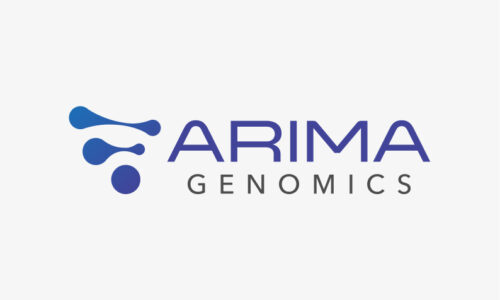April 17, 2019
Share
In the News
Google Maps in 3D accelerates our understanding of direction and travel, likewise, ability to view genomes in 3D accelerates our understanding of the role genetics plays in human health and disease.
A genome is an organism’s complete set of DNA, including all of its genes. Each genome contains all of the information needed to build and maintain that organism and genetic sequencing means determining the nucleic acid sequence of DNA in a linear dimension (1D), which tells scientist about the genetic information a DNA segment carries. Beyond the linear sequence information, the DNA is folded in non-random three-dimensional organizations (3D, referred to as “genome structure”), and in early 2013, Siddarth Selvaraj, a Ph.D. student at the University of California, San Diego (UCSD) was exploring the genome structure to study how the spatial co-localization of genes influenced its regulation toward health and disease – he and colleagues realized the immense value the structural information provided and without it, obtaining the complete genetic makeup of the DNA and the genome is impossible and thereby limiting our understanding of the role genetics play in human health and disease, and thus limiting the offering of compelling information about the role of disease inheritance, pathogenesis, and potential options for diagnostics and therapies. (Source)
Siddarth Selvaraj co-funded founded Arima Genomics in 2015, with a mission to celebrate Science and Scientists by providing tools that accelerate the understanding of both genome sequence and structure.
Today’s DNA sequencing technologies capture only the sequence information and therefore, Arima provides unique sample prep tools (kits) to preserve the sequence and structure information prior to DNA sequencing and provide unique Bioinformatics tools to reconstruct sequence and structure information post DNA sequencing.
Arima shines a light on the genome like never before, enabling crucial academic research, pharmacological efficacy studies, and patient therapeutic response profiles in the areas of developmental disorders and oncogenesis.
Funding Beginnings
Arima was awarded multiple Phase I and Phase II SBIR grants to support extensive project periods of research and kit development. Phase I funding was used to define the kit through scientific validation of approach. Phase IIs allowed Arima to improve protocols, source raw materials, and develop manufacturing capabilities and expertise, guardbanding, along with work out reproducibility both at Arima and at early access customer sites.
Through their participation in NIH’s Technical Assistance Program, I-Corps, Dr. Selvaraj and his team conducted extensive customer outreach, further helping to define the market for their technology. Dr. Christie Canaria, Program Manager for I-Corps at NIH, remembers Arima’s entrance into the program in 2017, “Throughout the 8-week course, the team learned that in order for Arima to inject value into the ecosystem, they needed to understand where Arima fit into the bigger process workflow. The team also came away with a strategy to Get-Keep-Grow customer relationships via publication and collaboration efforts.” According to Dr. Selvaraj, “SBIR funding allowed us to conduct real customer testing of the product, and I-Corps enabled Arima to uncover, define, and plan a product to optimize the customer experience; ultimately leading us to our kit-based distribution model.”
The Easy Part: Assembling a Team
Located in San Diego, a biotech hub, Arima’s leadership networked locally to find the best and brightest scientific and business expertise. Several of their team-members are from Illumina and other local biotech companies.
The science, backed by SBIR funding, helped to attract top talent. Dr. Selvaraj boasts their team of 13 employees as the company’s biggest asset, crediting the one-Arima culture as the reason they’ve retained top talent. “The one-Arima culture means everyone is respected and treated as family. We demonstrate integrity and calmness despite various stress levels in a startup condition, and promote openness, inclusivity, courage, and sincerity, to strive for high employee satisfaction and empowerment.”

Obstacles Entering the Market
When commercializing a product in the research tool space, reproducible quality and exceptional customer experience are important requirements for a successful company. Arima achieved these goals in a multi-step process –– initiating a beta program to test and optimize the technology; followed by an early access program to assess the demand and market value of the product; followed by a commercial launch to boost revenue. Each of these stages needed different skill sets.
In the beta, Arima needed credibility to convince researchers to test their product, SBIR provided the credibility and Arima spent a year gathering information, data, and use cases to help guide the development and optimization of the product. In the Early Access Program (EAP) launched in February 2018, Arima encountered resistance from customers on pricing due to traditional perceptions of research kits, but I-corps trained us to communicate in terms of value instead of kit-components. This allowed the team to curate a conversation around reproducible quality and top shelf customer experience. The EAP was a success –– helping Arima achieve a significant revenue milestone and confirming that the product had an excellent product-market-price fit.
By the time of commercial launch in November 2018, Arima had grown and organized a sales and marketing team that developed a clear go-to-market strategy which included publicity, scaled up supply chain and order management systems, optimized revenue collection process, and a top-notch customer service program. The launch was a success, driving sales up by 250% post-launch.
Dr. Selvaraj credits the combination of I-Corps, grant funding, a strong team, and a step-wise agile process helping them survive the valley of death.
Commercial and Industry Success, and the Future
Since its launch, Arima has become a customer and consortia favorite, selected by the Genome 10K Consortium to generate near error-free reference genomes of 260 species, and chosen to be an early-stage strategic partner by Agilent technologies.
Originally published by NIH Small Business Innovation Research, Small Business Technology Transfer



